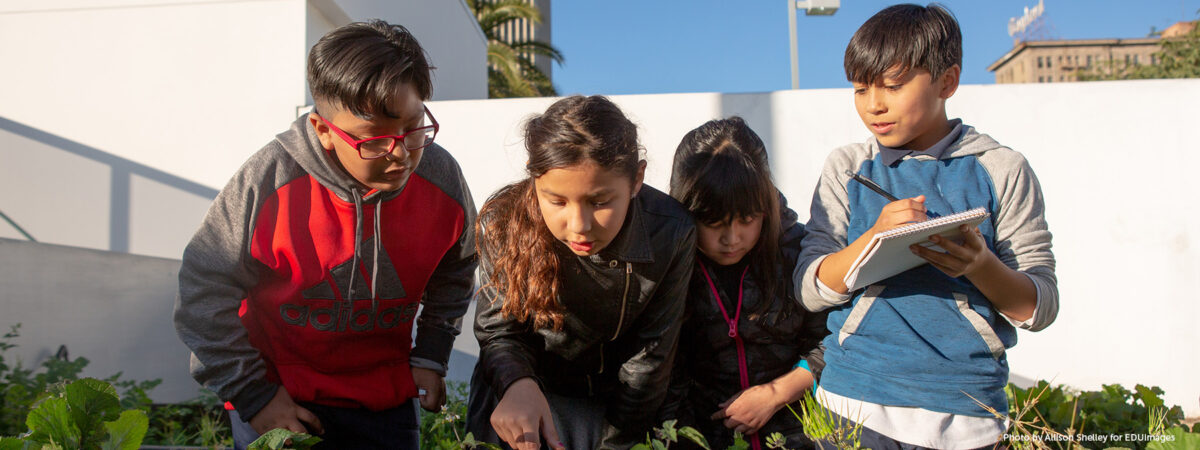
We wanted to build this research-focused community in a way that equally valued the practitioners, service providers, developers, and researchers involved. Placing different interest holders on equal footing within the community enabled participants to share perspectives and learn from each other, build new or strengthen existing partnerships, and ultimately improve students’ science education experiences.
To build this multi-perspective community, we used several strategies to connect members of this diverse community.
Our first kickoff event to launch the community fielded ideas from attendees to collectively articulate goals and activities. Those discussions highlighted both the importance of building partnerships across roles as well as participants’ desire for informal opportunities to discuss topics in small groups.
Inspired by the unconference-style EdCamps, we held informal meet-ups that let participants decide on topics that were important to them. At each of the five meet-ups we hosted, participants proposed discussion topic ideas, converged on a handful of topics, then broke out into small groups of their choosing to discuss.
Participants reported being excited to network with others interested in OpenSciEd. One district leader who attended said it was “great to connect with others on the same journey and get resources to support this work.” Researchers and developers in particular reported that hearing the perspectives and experiences of practitioners was invaluable to their work.
Another key element to support the community was hearing directly from teachers, coaches, and other district-level practitioners involved with OpenSciEd. To discover more about these practitioners’ perspectives, we surveyed teachers and leaders and then conducted focus group interviews with some of those respondents to learn firsthand about their OpenSciEd experiences related to key themes from the survey. We synthesized those findings in a report describing what practitioners need to successfully implement OpenSciEd in their classrooms, schools, and districts. We also held a webinar featuring a panel of experts to introduce and discuss the report.
The focus group interviews also highlighted the importance of practitioners sharing and reflecting on their experiences with each other. While not the primary goal of these sessions, they also enabled small groups of teachers and leaders to share insights across their contexts and learn from one another.
To more directly support OpenSciEd-enabled research, we offered 13 seed funding grants over four years to help researchers develop their ideas into research proposals. These funds supported not only researcher time, but also the involvement of practitioners and partnership building. For researchers who did not yet have established partners, we implemented a matchmaking process that led to the creation of a new team that we funded.
Seed funding enabled groups to explore new opportunities, analyze preliminary data, engage practitioners, develop underlying frameworks and designs for their proposals, and receive formative feedback from others. One recipient wrote in their reflections, “The funds provided us with the resources to hold teacher focus groups, solicit input from expert consultants, and compensate team members for time spent working on the project proposal. Receiving the seed grant also gave us confidence that our project concept was competitive.”
In our early discussions, assessment emerged as a topic of high interest across the research community. In response to this broadly-expressed interest, we held a webinar featuring three leading researchers who shared their ongoing assessment work related to classroom formative assessment practices, task design, teacher professional learning, and meeting students’ needs. An important guideline for presenters was to craft their message in a way that would resonate with a wide audience, including practitioners, policymakers, developers, and intermediaries.
While the work of the research community is coming to a close, we hope that the resources from the work—including the practitioner-needs report, our OpenSciEd research synthesis, and updated synthesis—will continue to advance and grow future OpenSciEd-enabled research.